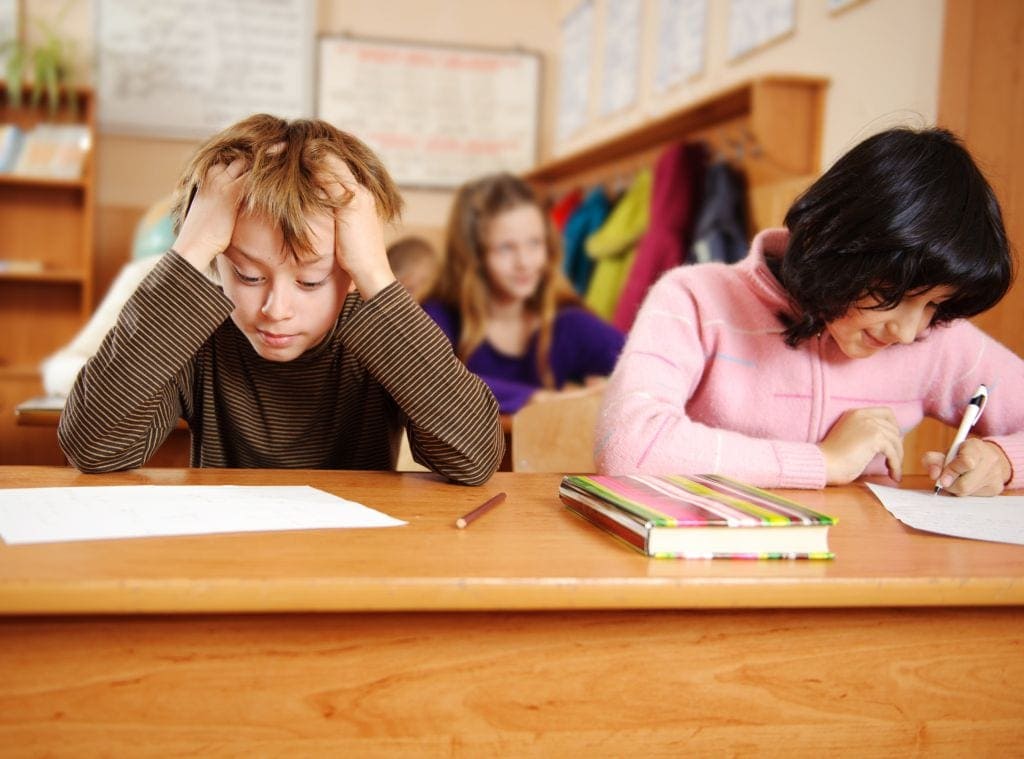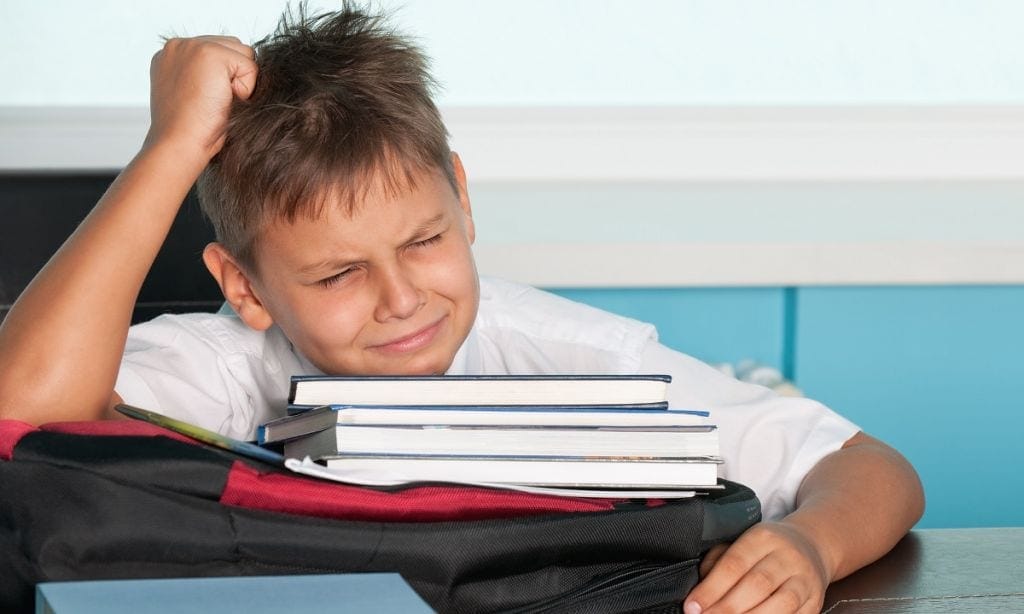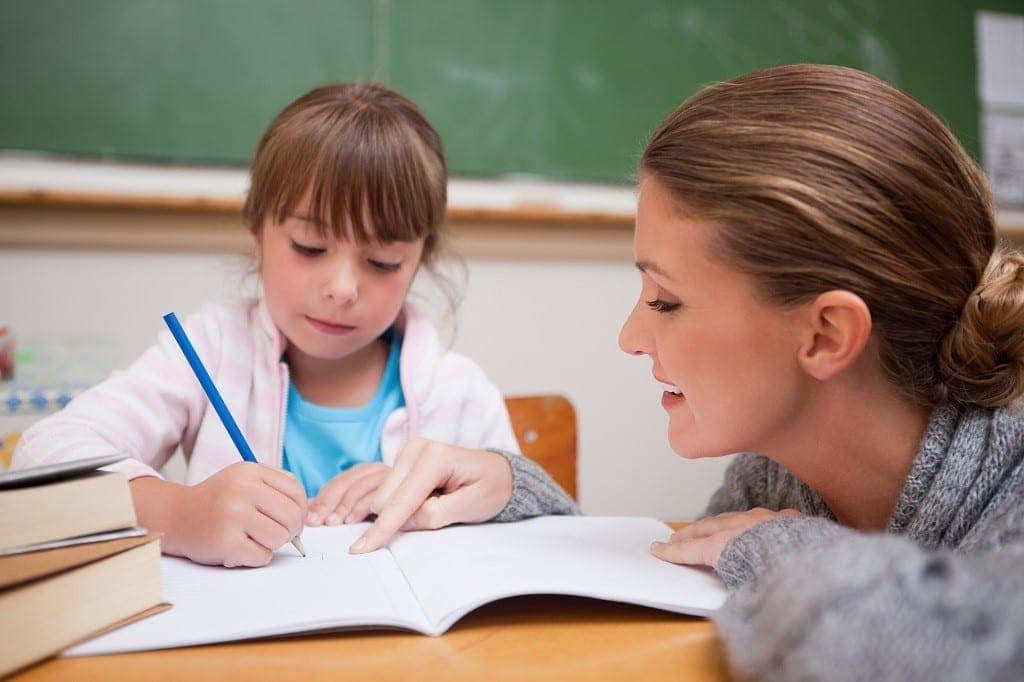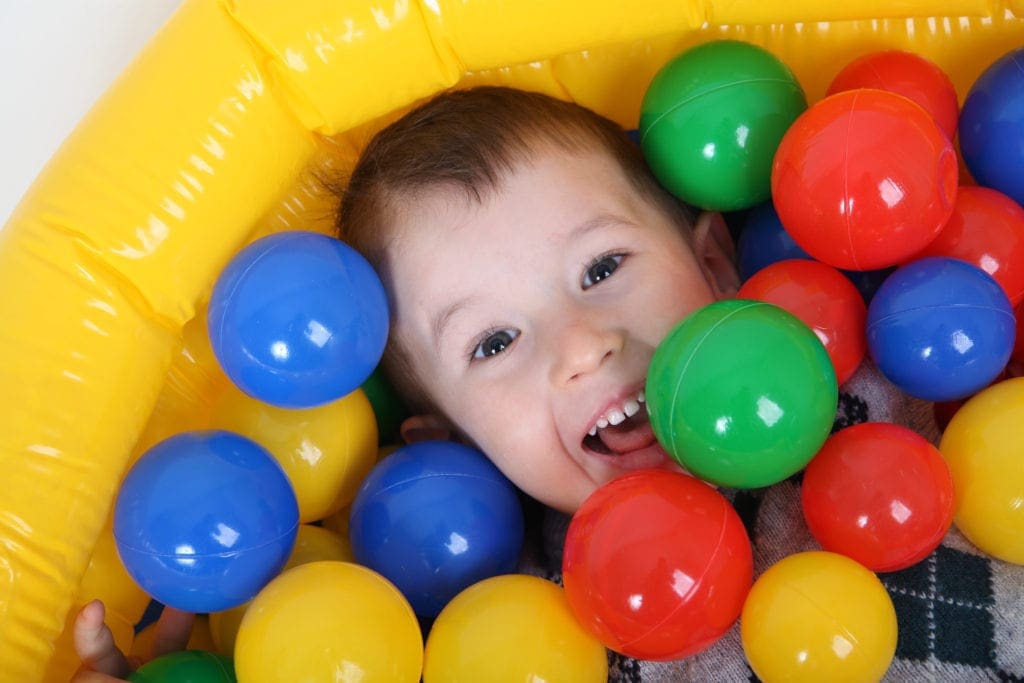“Is Your Child Ready For High School” is a guest post from Dr Lara Cain Gray. Lara is a freelance writer and mum-of-three. She writes books and arts reviews for families at Charming Language – a blog for readers and writers.
Is Your Child Ready For High School?
There is a lot of information available about preparing your little ones for starting school – but what about the not-so-little-ones? This is the time of year when many parents begin to worry about their upper primary aged children. Are you asking yourself: Will my son or daughter be well-prepared for starting high school?
Across The Great Divide
It feels like a big leap, for both carers and children, when our tweens move into secondary education. This has been felt even more strongly in Queensland since 2015, when Year 7 changed from the last year of primary to the first year of secondary education. Queensland kids may now be as young as 11 when they head to high school.
Primary teachers report meeting with panicked parents, asking about the academic milestones their child should be reaching by the end of Year 6 to cope with the challenges of Year 7. For the kids, however, being prepared is all about social concerns. “Will I get lost?” “Will I wear the right clothes?” “Will I make friends?”
“The tween years are all about transition and transformation,” according to Psychology Today. “There are few stages of development barring infancy when you have the opportunity to watch your child grow and change before your eyes.” This makes supporting your child as they step up to the next level of social and academic education as crucial and potentially complex as anything you did to nurture them when younger. It’s no wonder many parents find themselves struggling for ways to get it right!
Worry 1 – Is My Child Working Hard Enough In Year 6?
When it comes to worrying that your children are learning the right material in Years 5 or 6 to help them transition to Year 7, it’s important that parents put their trust in educators. All Queensland’s state and private schools follow the Australian Curriculum, which means subject coverage correlates between schools and carries on into secondary education. Of course, schools will differ in the ways they implement the curriculum, and in other areas like resource allocation or extracurricular activities, but core content is consistent.
Queensland Year 7 programs generally give children the chance to try a range of different subjects in order to guide their senior selections, and this includes guidance around workloads and time management.
Also, keep in mind that primary school is not just there to prepare kids for high school: it is an educational experience in its own right. Give your kids the chance to enjoy being school leaders, have fun with their friends, and appreciate the epic journey they’ve been on since Prep before forcing them to worry too much about what’s to come.
What can I do to help?
- Visit school open days
- Attend orientation events
- Ask secondary school staff directly about their expectations in different subject areas
- Maintain good communication with your child’s current teachers about their progress and development, particularly if your child usually needs additional learning support.
Worry 2 – What about homework?
Much recent education research suggests that homework in primary school has no academic benefit, and may even increase children’s stress levels and dampen their interest in learning. For this reason, many primary schools are moving away from insisting children do homework, sometimes encouraging non-compulsory home practice activities instead.
For a lot of families, this is a sweet relief from the nightly obligation! But there’s no denying homework remains at significant levels in secondary school. We spoke to several families of children in the early years of high school about what they wish they’d known when making the move. Matilda (Year 8) said: “I wish I was more aware of the endless amount of effort and time required in my school work. If I knew about that, then maybe my time management wouldn’t be so inconsistent.”
With this in mind, it pays to establish some kind of study routine in the upper primary years to help your child adjust to secondary expectations in order to be ready for high school.
What can I do to help?
- Start a routine of at least 30 minutes of ‘quiet time’ each afternoon or evening.
- If your child does not have set homework, they could:
- Read a book
- Try some puzzles, mazes or logic games
- Tell you about something they learned at school that day.
- Help your child establish a dedicated study space. This does not need to be a large or complicated area, but should be comfortable, with good lighting and away from other distractions.
- Encourage independence in school preparation. Kids might start making their own lunches, packing their bags and keeping a diary in the upper primary years.
- Here are some other top tips on creating effective homework strategies in your house.
Worry 3 – It’s all so new and different!
It’s natural for parents to want their children to do their best academically, but with anxiety levels amongst children steadily on the rise, our kids also need support to overcome the sheer ‘newness’ of staring at a different school. What’s more, school has changed a lot since ‘our day’ – and mostly for good reason. The fast pace of technology and our growing understanding of what makes kids tick are just some of the reasons why your child’s high school experience may differ significantly from your own.
Ask your kids about their biggest concerns before starting high school and you might be surprised at the things they consider intimidating. Common responses are:
- “It’s so much bigger than my primary school.”
- “I don’t know how to use a locker.”
- “I’ve heard the teachers are much stricter.”
- “Do I still bring a lunch box?”
- “I’m not sure how to catch the bus.”
Fear of the unknown is one of the biggest challenges children face in any situation. It may be worth reminding your kids that not everything changes when you go to high school! There will still be a uniform, they will still have a lunch break and their teachers will still have rules and expectations about behaviour.
Many of these practical fears will be allayed during orientation activities and in the first weeks of school. Most Year 7 programs in Queensland high schools include campus tours, school camps, separate homeroom or lunch areas for Year 7 students, buddy systems, and pastoral care activities. Rest assured, the teachers have been there and done this before.
But to put yourself in your child’s shoes, think about the last time you started a new job. On day one, your biggest concerns may have seemed trivial: knowing how to use the printer, where to get a coffee or who to ask for help, for example, rather than actual work requirements. After a few months, you probably found yourself teaching the next cohort of newbies how things were done. This will be your – and your child’s – experience of high school too!
What can I do to help?
- Talk to your child about some ‘new’ things that might be great – new friends, new subject areas, new sporting opportunities.
- Towards the end of Year 6, start practising the daily routine that will be required to be ready for high school. This might include giving kids a key to the house or catching public transport with them for the first time. Take some time to discuss how to deal with problems if they arise: for example, if you miss the bus, what will you do?
- Identify whether other kids from primary school will attend the same high school as your child. Perhaps you can organise a catch up over the holidays?
- Pick up a map of the school as a handy reminder of things you’ve seen at open days or online.
- Provide security by keeping your home routines consistent – this offers stability during times of change.
- Look out for ways that kids might challenge themselves or step outside their comfort zones as high school approaches.
“I think the best thing [my son] did was join the primary school musical,” says North Brisbane mum Karen, whose son was a little shy in upper primary. “It brought him out of his shell.” Now in high school, Karen’s son has continued to join clubs as a way of meeting new friends and having something to do at lunchtime if he wasn’t sure where else to be. “They have a Japanese club, and he has started his own board games club.”
Worry 4 – But they seem so young!
If we consider all the factors we’ve discussed so far, combined with the hormonal changes of puberty that drive physical, emotional and cognitive growth, it’s logical that the transition to high school can be overwhelming for children and their carers. Added to this is the reality that your blossoming tween is about to be surrounded by a sea of full throttle teens.
“Big kids swear heaps,” reported Luke, now in Year 9. In fact, several of the kids we spoke to said the same thing! Whatever your personal or family position may be on language use, sex education or watching M rated movies, now is the time to keep up good communication with your kids about the things they might be exposed to in the world of older children.
Interestingly however, some kids also reported relief that high school is not quite the blackboard jungle that’s portrayed on teen-oriented films and TV shows. “It’s not like the books and movies,” said Will, Year 8. “There’s no such thing as the popular group.” Rather, bigger schools can mean many more diverse groups of people with diverse interests. Whilst overwhelming at first, this can also open up more opportunities to ‘find your tribe’ than kids may have in a smaller primary school.
As the changes to Year 7 were implemented in 2015, Queensland Education released a series of videos for families, which are a handy resource as you prepare your child. In one scene, we see Cerys, about to enter Year 7, describing her fear that her head will be flushed down the toilet! “High school isn’t about looking out for bad people that will hurt you, but the good people you need to hold close,” were the wise words from Dannan, also Year 8.
This is not to suggest that bullying is not a very real concern in Queensland schools. As we all know, this is further complicated by the way our kids now organise both their academic and social school lives online. On the most common social media platforms, 13 is the legal age at which a child can have their own account. Many kids use these tools earlier, but you can anticipate a major increase in activity in the early secondary years.
What can I do to help?
- Encourage your kids to be responsible digital citizens. There are programs available online, in schools and with various community groups to advise parents and children about smart ways to use the internet and social media.
- Focus your discussions on ways to make new friends, rather than ways to avoid enemies.
- Help your kids develop stress management skills. This may be a meditation program, positive self-talk or simply practising taking a deep breath before reacting in a stressful situation. If this is not something you have knowledge about, consider working with a counsellor or asking your child’s primary school to implement programs in this space.
Resilience Training
Underpinning so many of these transition planning tips is one crucial life skill: resilience. Mental health champions Beyond Blue list the following habits and attitudes as ways to build resilience in kids, starting at home:
- Work on good relationships with others, including both adults and peers
- Build their independence
- Learn to identify, express and manage their emotions
- Build their confidence by taking on personal challenges.
Education expert Jenny Atkinson says: “While this transition can be challenging, it’s also a time when children are most open to learning new skills. They want to find solutions to challenges they are facing.” This makes it a great time to help them develop positive attitudes and good work habits. “It’s also a great opportunity for you to connect with your(ready for high school) child as you support them through this important time of transition.”
Is your child ready for high school?
If you have any comments on this incredible guest post, or you’d like to add your own thoughts, please feel free to comment below. Share this with any parents YOU know who are going through this important time with their own family.
Still looking for the best school shoes for your child’s transition to high school. Check out our article here.






After the year we have had with covid , I’m seriously struggling with my 11 year old son going onto high school , he is so far behind , with learning difficulties, ADHD , very immature, I’ve made my feelings clear to his public school , even contacted the regional education dept in Victoria, but I’ve continuously been sent high school enrolment forms , which in turn I’ve felt pressured to fill in and return , i don’t think I’m being heard , and can’t help feel this is setting my son up to fail as he’s so far behind , what do I do .